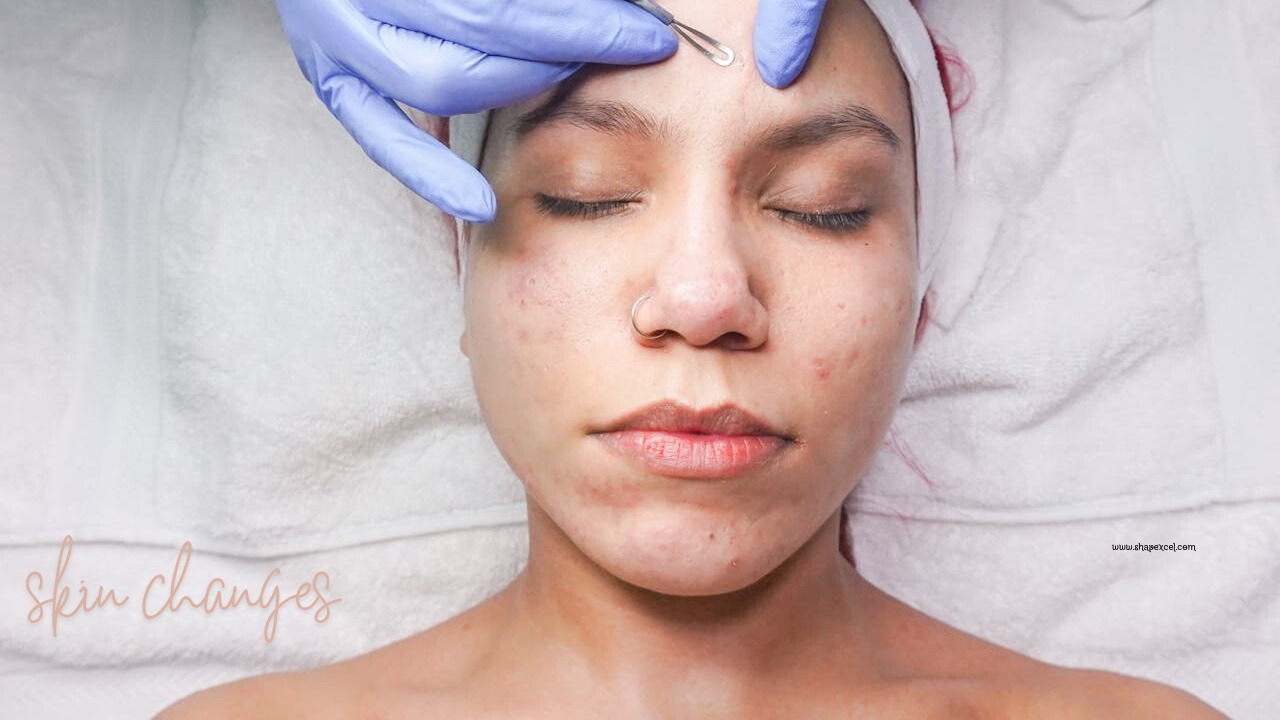Polycystic ovary syndrome or PCOS is a complicated endocrine condition affecting millions of women worldwide.
Even though PCOS is common, there are still a lot of misconceptions about it, which delay diagnosis and result in subpar care.
This site seeks to give readers a thorough understanding of PCOS, including information on symptoms and effects on women’s health.
Table of Contents
- What is Polycystic Ovary Syndrome (PCOS)?
- What is Hormonal Imbalance And Its Effects
- Symptoms Of PCOS
- The Impact Of PCOS on Health
- How to diagnose PCOS?
- Management And Treatment
- In A Nutshell
- Frequently Asked Questions
What is Polycystic Ovary Syndrome (PCOS)?
PCOS, also known as polycystic ovarian syndrome, is a hormonal condition that affects many fertile women. The term “polycystic ovary syndrome” refers to the characteristic appearance of the ovaries in most, but not all, of the affected women.
These ovaries are full of tiny cysts, which are sacs filled with fluid and typically measure less than 8 millimeters. Although the precise origin of PCOD is yet unknown, a combination of environmental and genetic factors are believed to be involved.
An imbalance in reproductive hormones, which can cause a range of symptoms and health issues, is the hallmark of this illness.
What is Hormonal Imbalance And Its Effects
In PCOS, the ovaries produce more than normal amounts of androgens, which are male hormones, and women also produce smaller amounts. This hormonal imbalance disrupts the normal menstrual cycle and can lead to the development of ovarian cysts.
Moreover, PCOD is frequently linked to insulin resistance, a condition in which the body’s cells do not react to insulin as intended. This may raise blood insulin levels, exacerbating the already existing hormonal imbalance.
Symptoms Of PCOS
A multitude of symptoms, which can differ significantly from person to person, are indicative of PCOD. Among the most typical symptoms are:
1. Irregular Menstrual Cycle:
One of the main symptoms of Polycystic Ovary Syndrome is irregular or nonexistent menstrual cycle. Less than eight periods per year or cycles that differ by more than 35 days are common in women with PCOS. The ovary’s failure to release an egg each month due to a disruption in normal ovulation is the cause of this irregularity.
2. Hyperandrogeism:

High androgen levels can cause symptoms including severe acne, androgenic alopecia (male-pattern baldness), and hirsutism (excessive hair growth on the face, chest, and back). These symptoms affect one’s body image and self-esteem, and they can be stressful.
3. Polycystic Ovaries:
Through ultrasonography, several tiny cysts on the ovaries are frequently found. Despite not being dangerous, the existence of these cysts is a crucial sign for PCOD diagnosis.
4. Weight Gain:

A lot of women who have PCOS find it hard to lose weight and gain it again. It frequently has to do with the metabolic problems and insulin resistance linked to the syndrome.
5. Insulin Resistance:
One of the main characteristics of PCOS is insulin resistance, which raises blood insulin levels. This could raise the chance of type 2 diabetes and metabolic syndrome, a cluster of disorders that includes elevated blood pressure, elevated blood sugar, and abnormal cholesterol.
6. Fertility Issues:
One of the main reasons why women are infertile is PCOS. An imbalance in hormones can cause ovulation to be disrupted, which can make conception challenging. However, with the right medical care, many PCOSD-afflicted women are still able to conceive.
7. Skin Changes:

Acanthosis nigricans, or darkening of the skin in specific spots, skin tags, and recurrent acne are just a few of the skin issues resulting from PCOS.
8. Mood Disorders:
Mood problems like anxiety and depression are more common in women with Polycystic ovary syndrome. Mental health issues can be exacerbated by the condition’s long-term nature, physical symptoms, and fertility issues.
The Impact Of PCOS on Health
If left untreated, Polycystic Ovary Syndrome can have long-term health consequences in addition to its acute symptoms. Comprehending these possible hazards is essential for holistic treatment.
1. Cardiovascular Health:
Women with PCOD have an increased risk of heart disease. This elevated risk is attributed to variables including dyslipidemia (abnormal cholesterol levels), obesity, and insulin resistance. It is crucial to regularly check blood pressure, cholesterol, and heart health in general.
2. Diabetes and Metabolic syndrome:
The risk of type 2 diabetes is significantly increased by insulin resistance linked to PCOS.
Women with PCOS are also more likely to have metabolic syndrome, which is characterized by a number of illnesses like high blood pressure, excessive blood sugar, and abnormal cholesterol levels.
To lower these risks, medical interventions and lifestyle changes are crucial.
3. Endometrial Cancer:
The endometrial lining may thicken as a result of irregular menstrual cycles and extended ovulation absence.
Endometrial hyperplasia and, eventually, endometrial cancer are become more likely by this. To avoid these issues, prompt intervention and routine monitoring are required.
4. Sleep Apnea:
Obstructive sleep apnea is more likely in women with PCOD and is characterized by recurrent breathing pauses during sleep. Insulin resistance and obesity are frequently associated with it. It’s critical to treat sleep apnea for general health and well-being.
5. Mental Health:
It is impossible to overlook PCOS’s psychological and emotional effects. Because of the condition’s protracted nature and associated symptoms like weight gain, acne, and infertility, anxiety, despair, and a lower quality of life are possible outcomes. Joining support groups and requesting assistance from mental health specialists may be helpful.
How to diagnose PCOS?
A thorough assessment of the patient’s symptoms, medical history, and physical examination are required for the diagnosis of PCOS. While there isn’t a single test to diagnose PCOD, the following criteria are frequently applied:
1. Rotterdam Criteria:
The 2003-established Rotterdam criteria are frequently utilized in PCOS diagnosis. When two of the following three characteristics are present, the diagnosis can be made based on these criteria:
- Erratic or nonexistent menstruation/ ovulation
- Signs of hyperandrogenism in the body or biochemically
- A noticeable polycystic ovary on ultrasonography(ultrasound)
2. Blood Tests:
Hormone levels, including those of androgens, luteinizing hormone (LH), follicle-stimulating hormone (FSH), and insulin, are measured by blood tests. These tests aid in the evaluation of insulin resistance and hormonal imbalance.
3. Ultrasonography:
Pelvic ultrasonography is a useful tool for ovulation examination and multiple cyst detection. On the other hand, not every woman with PCOS will be able to see visible ovarian cysts.
Management And Treatment
Several therapeutic options are available to manage symptoms and lower the risk of long-term problems, despite the fact that PCOS has no known cure. Plans for treatment are customized based on each patient’s unique symptoms and medical objectives.
1. Change In Lifestyle:
Changing one’s lifestyle is frequently the first step in treating PCOS. These consist of keeping a healthy weight, exercising frequently, and implementing a balanced diet. Insulin resistance can be lowered and symptoms can be much improved with even a small weight loss of 5–10%.
2. Medications:
- Hormonal birth control: Oral contraceptives can reduce androgen, control menstrual periods, and treat acne.
- Anti-androgen drugs: By inhibiting the effects of androgen, these drugs, including spironolactone, help lessen acne and excessive hair growth.
- Metformin: This drug increases sensitivity to insulin and may be useful in managing weight and regular menstruation.
- Infertility Treatment: Drugs like letrozole or clomiphene citrate can induce ovulation in women who are attempting to get pregnant. Technologies for assisted reproduction, such as In vitro fertilization (IVF), may be advised in specific circumstances.
3. Psychological Support:
A key component of the treatment approach is psychological support because PCOS has a negative influence on mental health. Support groups, therapy, and counseling can offer coping mechanisms and emotional support.
In A Nutshell
A complex endocrine condition affecting millions of women globally is called polycystic ovary syndrome (PCOS).
Owing to hormonal imbalance, irregular monthly cycles, and symptoms including acne, hirsutism, and infertility, PCOS can have a major negative influence on a woman’s quality of life.
In addition, this condition raises the risk of developing long-term health issues such as endometrial cancer, type 2 diabetes, and heart disease.
It’s critical to comprehend PCOS for an early diagnosis and successful treatment. A combination of physical examination, blood testing, ultrasound, and medical history evaluation is frequently used to make a diagnosis.
After a diagnosis, symptoms can be managed and the likelihood of problems decreased with a comprehensive strategy that includes medication, lifestyle changes, and psychological support.
Although having PCOS can be difficult, with the correct care and management techniques, women can lead healthy, happy lives. Women are more equipped to make health-related decisions when they are educated and aware.
Effective PCOS management involves prioritizing mental health, advocating for yourself, creating a support system, and keeping a positive outlook.
Frequently Asked Questions
Is pcos treatable?
Yes, It is possible to treat PCOD or polycystic ovary Disease. In order to improve quality of life and reproductive health, treatment options include lifestyle modifications, hormone-regulating medicines, and symptom management.
What is the main cause of PCOS?
Although the precise origin of polycystic ovarian syndrome, or PCOD, is unknown, a mix of genetic and environmental factors are likely involved. It is largely caused by hormone imbalance and insulin resistance, particularly high levels of androgens.
What are the symptoms of PCOS in a woman?
Women who have PCOS may experience irregular menstrual cycles, hirsutism, acne, weight gain, thinning or loss of hair, and infertility. Skin darkening is another possibility for certain women, particularly around the neck, waist, and under the breasts.
Is PCOS a serious problem?
Indeed, PCOS can have serious consequences. If left untreated, these complications might include infertility, diabetes, heart disease, and mental health problems.
Does PCOS affect your life?

Yes, PCOS has a major influence on life. It affects fertility, raises the risk of diabetes and heart disease, causes weight gain and acne, and negatively affects mental health, leading to anxiety, depression, and poor quality of life. There might be a reduction.


